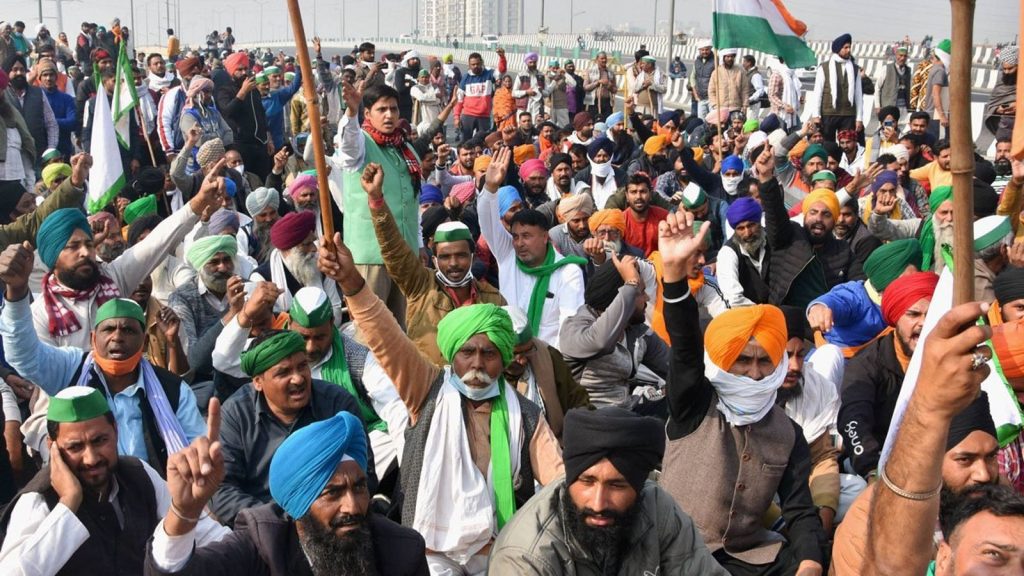Manas Dasgupta
NEW DELHI, Mar 20: In a sort of victory for the Narendra Modi government, the Parliamentary Standing Committee on Food, Consumer Affairs and Public Distribution, which has members from 13 different political parties including the BJP and the Congress, has recommended the government to implement the Essential Commodities (Amendment) Act, 2020 in “letter and spirit.”
The Act is one of the three contentious farm laws against which farmers are protesting and the Supreme Court had recently asked the government to hold back their implementation. It would also create a situation of conflict for most of the opposition parties inside and outside Parliament since most of these parties have opposed the acts outside Parliament with the Congress standing with the protesting farmers for the repeal of the three acts.
In its report tabled in the Lok Sabha on Friday, the 30-member committee drawn from both the Lok Sabha and the Rajya Sabha and headed by Sudip Bandyopadhyay of the Trinamool Congress, said it “hope[s] and expect[s] that the recently enacted ‘The Essential Commodities (Amendment) Act, 2020’ which was aimed at addressing the issue will become a catalyst for unlocking vast untapped resources in the agriculture sector by creating an environment for enhanced investments…, fair and productive competition in agricultural marketing and increase farmers’ income,” virtually supporting the Modi government’s stated stand.
The committee recommended to the government “to implement the Essential Commodities (Amendment) Act, 2020, in letter and spirit, and without let or hindrances so that the farmers and other stakeholders of farming sector in this country receive the benefits intended under the said Act.”
The report on “Price Rise of Essential Commodities – Causes and Effects” noted that “although the country has become surplus in most agricultural commodities, farmers have been unable to get better prices due to lack of investment in cold storage, warehouses, processing and export as entrepreneurs stated to be get discouraged by the regulatory mechanisms in the Essential Commodities Act, 1955”.
This, the report said, “has resulted in farmers suffering huge losses when there are bumper harvests, especially of perishable commodities, much of which could have been reduced with adequate processing facilities.”
The 30-member Committee has members from 13 political parties including AAP, BJP, Congress, DMK, JD(U), Naga People’s Front, National Conference, NCP, PMK, Shiv Sena, SP, TMC, and YSRCP. One member is nominated.
The committee’s recommendation to implement the Essential Commodities (Amendment) Act in letter and spirit comes after the Supreme Court on January 12 stayed the implementation of three farm laws in view of the farmers’ protests. The other two laws are the Farmers’ Produce Trade and Commerce (Promotion and Facilitation) Act, 2020, and the Farmers (Empowerment and Protection) Agreement on Price Assurance and Farm Services Act, 2020.
A Supreme Court-appointed committee is expected to give its recommendations in the next few days. Several rounds of talks between the government and the agitating farmer unions have failed to end the deadlock.
The Standing Committee, however, also noted the possibility of the implementation of the act jacking up the prices of some of the essential commodities , particularly for the consumers outside the purview of the public distribution system and asked the government to “keep a constant watchful eye on the prices of all essential commodities.”
“Noting further that foodstuffs such as potato, onions and pulses are part of a common man’s daily diet, and that lakhs of people who do not get the benefits of Public Distribution System (PDS) may suffer adversely in the aftermath of the implementation of the new Act, the Committee also desire the Government to continue to keep a constant watchful eye on the prices of all essential commodities and to resort to the remedial provisions provided in the Essential Commodities (Amendment) Act, 2020 when called for,” the report said.
Chairman Bandyopadhyay could not attend the last meeting of the Committee on March 18 due to “certain exigencies”. The meeting adopted the report under acting chairman Ajay Misra Teni of the BJP.

